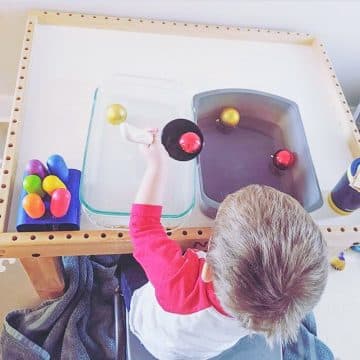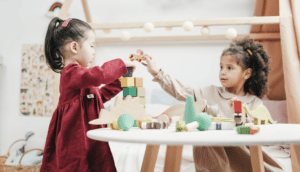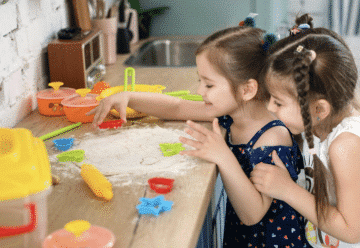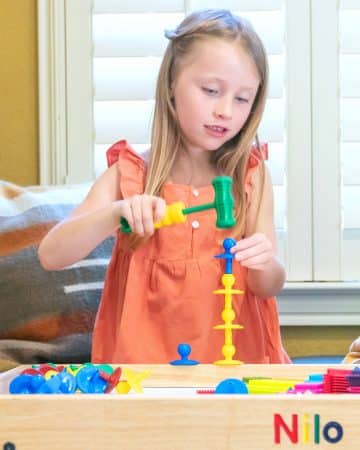
As soon as they’re born, children are taking in information from the world around them, through their senses. These are vital when it comes to learning and understanding their environment. For example, you’ll have certain smells that take you right back to childhood when you smell them as an adult.
This shows that when the senses are engaged, children are able to learn and retain more information. As such, sensory play is an important part of a child’s development. Here’s why it’s so important for your child, and how to incorporate sensory play into your child’s routine.
The Senses Used In Sensory Play
As you would expect, all the senses are used in sensory play. That includes touch, taste, smell, sight, and hearing. What you may not realise though, that other senses are used in sensory play too. These are vital, as they help your child understand the world and build pathways in the brain to facilitate learning. These include:
Balance: This is how the vestibular system in the inner ear tells your child’s brain their body position, in relation to gravity.
Body awareness: This is how your child’s brain recognises where their body is in space, using feedback from the muscles and joints.
What Is Sensory Play?
So, if your child engages in sensory play, what would that look like? It really is any play that engages all of their senses. “When a child engages in sensory play, their brain is building new connections and pathways” says Anna Sandwell, a psychology blogger from Write My X and 1 Day 2 Write. “Every time they have a new experience, the new connections are made and they’re able to learn more.”
Sensory play could look like a lot of different things. For example, you can give them the opportunity to play with different textures, such as sand or water. Physical play that includes jumping, rolling and swinging helps with developing their sense of balance. Playing with a xylophone or even just a pan and a wooden spoon will help with auditory play.
There are lots of different ways in which your child can play and learn more through their senses. It can be done spontaneously, or through dedicated sensory play sessions.
Sensory Play Through The Stages Of Development
Your child is growing and learning all the time, so the way they engage in sensory play will be different. For example, for babies, it’s all about developing those new connections in the brain so they can learn more about their surroundings. They will respond to different stimuli, and even start to understand language in this way. A baby will engage in sensory play via touching objects, and hearing different sounds.
When your child becomes a toddler, they will start developing their thinking skills, and that’s something that can be encouraged through sensory play. “At this point, the child will be learning about concepts such as time, opposites and more” says journalist Barry Newsom, from Origin Writings and Brit Student. “As such, sensory play that supports this learning works best.”
As for preschoolers, they will be becoming more independent. Sensory play will be able to help them develop the skills they need for that independence. For example, playing with musical instruments and building with objects will help them with this.
The Benefits Of Sensory Play
There are so many benefits to sensory play, a lot of which have already been covered here. There are some other benefits that you should be aware of though, including:
Learning sensory attributes: This is sensations such as ‘hot’, ‘cold’, ‘dry’, ‘wet’ and so on. Sensory play allows children to create those connections at a young age.
Helps with anxiety or frustration: Sensory play gives a child the chance to handle different attributes in an environment where there’s no pressure. For example, a child that is fussy about foods with ‘wet’ textures can play with these textures in their own time.
Developing memory: Sensory play will help children develop their memory, and improve it over time.
There are so many reasons why sensory play is so important for your child. The sooner your child starts playing and using their senses, the more they will learn and retain. It’s a great way for them to develop vital skills.

George J. Newton is a writer for Assignment writing services and Thesis writing service, where he covers
child development. He also blogs for Next Coursework.



